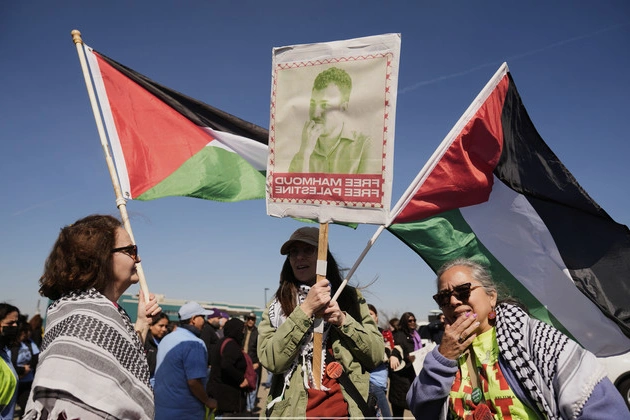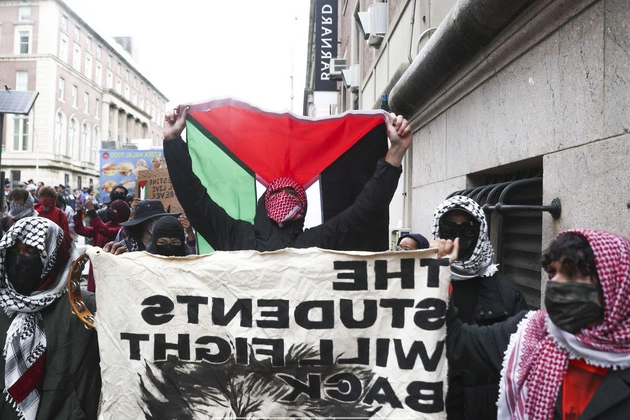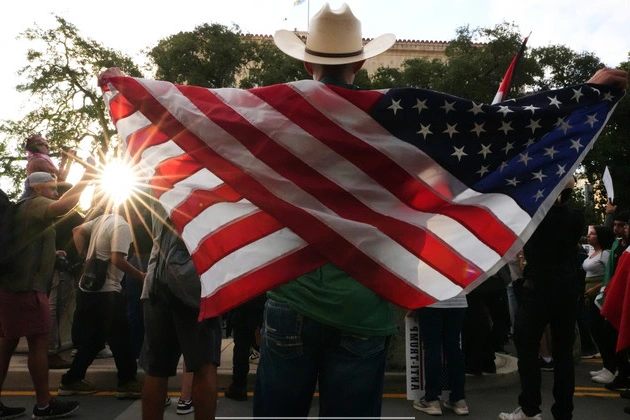
Pro-Palestinian advocacy groups are amplifying their voices within the Democratic Party, urging the Democratic National Committee (DNC) to enhance their outreach to pro-Palestinian voters. This move comes in response to perceived shortcomings in engagement following the Israel-Hamas conflict and Kamala Harris’ campaign approach.
Demands for Improved Engagement
In a joint letter addressed to DNC Chair Ken Martin and Executive Director Roger Lau, several progressive advocacy groups, including IMEU Policy Project, IfNotNow, Gen-Z for Change, and Justice Democrats, expressed concerns over the party’s handling of pro-Palestinian voters. They criticized the Harris campaign for allegedly marginalizing and dismissing Democratic voters who opposed Israel’s actions in Gaza.
The letter specifically pointed out instances where the Harris campaign failed to adequately follow up with individuals inquiring about Gaza, raising questions about the campaign’s responsiveness to this critical issue.
Call for Accountability and Data Collection
The advocacy groups called for improved data collection on pro-Palestinian voter engagement and requested an investigation into the Harris campaign’s approach to the Israel-Palestine conflict. They sought a meeting with DNC leadership to discuss their concerns and experiences, particularly focusing on the impact of Harris and Biden’s positions on Israel and Palestine on voter sentiment.
Moreover, the groups emphasized the need to assess whether the party’s stance on the conflict influenced voter behavior, citing polling data that highlighted the significance of addressing Israel’s actions in Gaza for a considerable segment of Democratic voters.
Challenges from Pro-Israel Advocacy Groups
As tensions within the party escalate, the advocacy groups also called for restrictions on super PAC spending in Democratic primaries to limit the influence of pro-Israel advocacy groups like the American Israel Public Affairs Committee (AIPAC). This move signals potential conflicts within the party regarding its policy towards Israel.
While the DNC has yet to respond to the letter, the demands from pro-Palestinian groups underscore the growing divide within the Democratic Party over its approach to the Israel-Palestine conflict.
Impact on Voter Engagement and Party Unity
The advocacy groups’ actions reflect broader concerns within traditionally Democratic constituencies, especially among Arab American communities, regarding the party’s stance on the conflict. They argue that addressing these issues is crucial for narrowing the gap between the party base and its leadership.
By highlighting the importance of engaging with pro-Palestinian voters and addressing their concerns, these groups aim to shape the party’s agenda and electoral strategy. Their efforts also underscore the challenges faced by the Democratic Party in balancing diverse viewpoints on foreign policy issues.
As the debate over Israel and Palestine continues to evolve within the party, the DNC faces the task of reconciling these competing interests while maintaining unity and relevance among its voter base.















